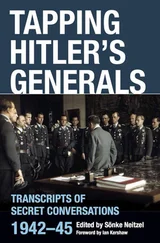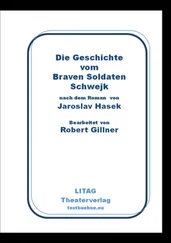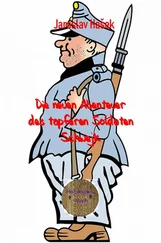Interpretive paradigms are especially central to how soldiers in World War II experienced others, their own mission, their “race,” Hitler, and Jews. Paradigms equip frames of reference with prefabricated interpretations according to which experiences can be sorted. They also include interpretations from different social contexts that are imported into the experience of war. This is especially significant for the notion of “war as a job,” which in turn is extremely important for soldiers’ interpretations of what they do. This central role can be gleaned from phrases like the “dirty work” or the “fine job” done by the Luftwaffe that recur in the soldiers’ conversations. The interpretive paradigm from industrial society for how soldiers experienced and dealt with war also informs philosopher Ernst Jünger’s famous description of soldiers as “workers of war.” In Jünger’s words, war appears as a “rational work process equally far removed from feelings of horror and romanticism” and the use of weapons as “the extension of a customary activity at the workbench.” {23} 23 Gerhard Paul, Bilder des Krieges, Krieg der Bilder: Die Visualisierung des modernen Krieges (Paderborn: Schoeningh Verlag, 2004), p. 236.
In fact, commercial work and the work of war are indeed related in a number of respects. Both are subject to division of labor, both depend on technical, specialist qualifications, and both are hierarchically structured. In both cases, the majority of those involved have nothing to do with the finished product and carry out orders without asking questions about whether commands are sensible. Responsibility is either delegated or confined to the particular area on which one directly works. Routine plays a major role. Workers and soldiers carry out recurring physical movements and follow standing instructions. For instance, in a bomber, pilots, bombardiers, and gunners with varying qualifications work together to achieve a finished product: the destruction of a target, whether that target might be a city, a bridge, or a group of soldiers in the open field. Mass executions such as those perpetrated against Eastern European Jews were not carried out only by those who fired the guns, but by the truck drivers, the cooks, the weapons maintenance personnel, and by the “guides” and “carriers,” those who brought the victims to their graves and who piled up the corpses. The mass executions were the result of a precise division of labor.
Against this backdrop, it is clear that interpretive paradigms give war a deeper meaning. If I interpret the killing of human beings as work, I do not categorize it as a crime and, thereby, normalize what I am doing. The role played by interpretive paradigms in the reference frame of war emerges clearly from examples like the ones above. Actions that would be considered deviant and in need of explanation and justification in the normal circumstances of everyday civilian life become normal, conformist forms of behavior. The interpretive paradigm, in a sense, automatizes moral self-examination and prevents soldiers from feeling guilt.
Part of an orienting frame of reference is very simple: it is a universe of regulations and a position within a hierarchy that determines what sort of orders an individual can be told to carry out and which orders he himself can issue to subordinates. Civilian life, too, has a spectrum ranging from total dependence to total freedom, depending on the roles one has to play. A business tycoon may enjoy immense freedom of action and be beyond the command of anything but the law in his business. But the situation might be very different in his family life, where he may be bossed around by a dominant father or an imperious wife.
By contrast, such things are eminently clear in the military. In the army, rank and function unambiguously determine how much leeway individuals have. The lower down one is in the hierarchy, the more dependent one will be on others’ commands and decisions. Yet even within total institutions like a military boot camp, a prison, or a closed psychiatric clinic, everyone enjoys at least a small measure of freedom of action. In his book Asylums, sociologist Erving Goffman has convincingly described how people can exploit rules in total institutions for their own purposes. According to Goffman, when people in such institutions use jobs in the kitchen or the library to get organized or smuggle desired goods, they are engaged in “secondary adjustments,” pretending to follow the rules but actually advancing their own interests. Occupying troops enjoy numerous opportunities for secondary adjustment. In June 1944, for example, a certain Lieutenant Pölert related: “I sent home a tremendous amount of butter and three or four pigs from France. It may have been three to four cwt of butter.” {24} 24 SRM 564, 17 June 1944, TNA, WO 208/4138.
Soldiers welcomed such sides of war from which they could personally profit. The leeway afforded by secondary adaptation, however, drastically declines in actual battle and can only be exploited if one enjoys violence. In any case, as the situation grows more confined and drastic, the frame of reference becomes less differentiated.
In cases like total institutions with a limited frame of reference, freedom of choice is minimized while security of orientation grows. At the same time, social duties can intervene in established, unambiguous decision-making structures and make group ties or even chains of command more permeable. For instance, the commandant of the Dautmergen concentration camp, Erwin Dold, disobeyed orders and organized food for “his” inmates, in a unique attempt to improve their chances of survival. He did this in the secure knowledge that his wife supported and even expected such behavior. {25} 25 Wolfram Wette, ed., Stille Helden—Judenretter im Dreiländereck während des Zweiten Weltkriegs (Freiburg: Herder, 2005), pp. 215–32.
Another example of the impact of social duties was soldiers who suddenly felt moral scruples when carrying out mass executions, after noticing resemblances between children they murdered and their own kids. {26} 26 Harald Welzer, Täter: Wie aus ganz normalen Menschen Massenmörder werden (Frankfurt/Main: Fischer Verlag, 2005), p. 183.
Nonetheless, we should be under no illusions about the effect of social duties. We know of a great number of cases in which the real or imaginary presence of a wife actually encouraged soldiers to kill because they felt they were acting in harmony with the wishes and choices of their spouses.
Social duties emerge clearly in the recorded conversations of tank commander Heinrich Eberbach. In October 1944, while interned in the British POW camp Trent Park, he talked about whether he should voluntarily assist Allied propaganda efforts:
I am fairly well known in tank circles in which I have given many addresses and lectures etc. I am convinced that if I were to make such a proclamation, which would be heard and read by the people—leaflets dropped over the front and so on—it would certainly have a certain effect on the troops. But first I should consider it as an utterly dirty thing to do in every way, it would go against my feelings so much that I could never do it. Then quite apart from that—there are my wife and my children. I wouldn’t dream of doing it. I should be ashamed to face my wife if I did. My wife is so patriotic, I could never do it. {27} 27 GRGG 217, 29–30 October 1944, TNA, WO 208/4364.
The profound influence of social ties results from the fact, contrary to popular assumption, that people behave within social relationships and not for causal reasons or according to rational calculation. Social ties are thus a crucial variable in determining what people decide—all the more so when decisions are made under stress, as in Stanley Milgram’s famous simulation. In that experiment, social constellations were decisive in how obediently the subjects behaved toward the authority figure. {28} 28 There has been much written about the fact that more than 60 percent of the participants in the Milgram experiment were willing to subject what they believed was a fellow participant to a presumably lethal dose of electricity. The experiment was duplicated in more than ten other countries, and the results remained comparable. What has attracted less attention is the fact that the percentage of people who blindly obeyed instructions sank when the experiment was varied. This strongly suggested that social immediacy has a strong influence on obedience. If there was contact between the “learner” and the “teacher,” for instance, if they were in the same room or the “teacher” had to press the “learner’s” hand onto an electrified surface, the percentage of those who blindly followed instructions sank to 40 and 30 percent respectively. The significance of social proximity also emerges when “teachers” and “learners” were friends, acquaintances, or family members. In these cases, the percentage of blind obedience dropped to 15 percent, and “disobedient” subjects tended to break off the experiment significantly earlier than in other variations of the Milgram test.
Читать дальше












